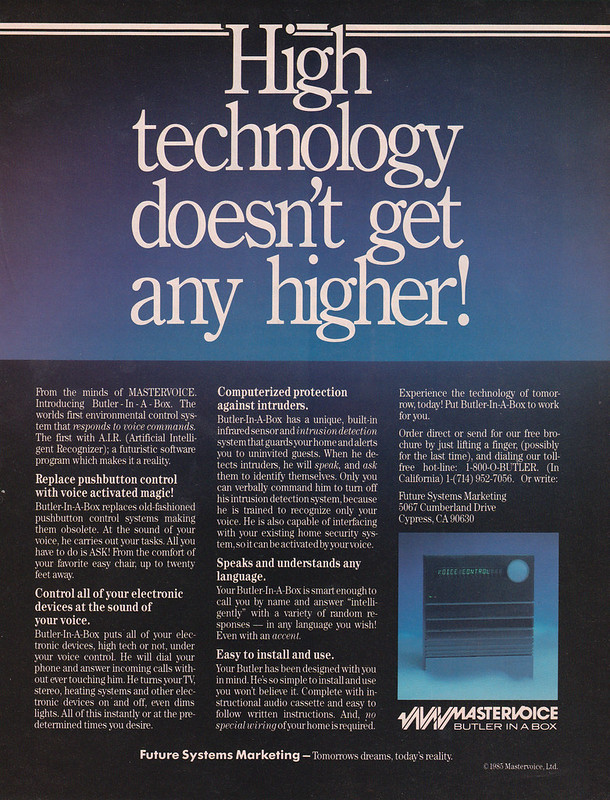Today we have smart devices of all kinds: speakers, TVs, coffee makers, garage door openers… but there was also a smart home device that was made years and years before the smart home era began.
It was called the Butler In A Box, and hearing about what it does sounds awfully familiar to those of us with smart speakers at home.
The Butler In A Box story starts with magician Gus Searcy.
It’s said that friends asked him why if he could pull a rabbit out of a hat, why couldn’t he use magic to turn lights on and off instead of using switches?
He and programmer Franz Kavan set to work on a computer that could pair together wireless remote control technology with computing power.
It did turn lights on and off, without using a switch, and could even set zones in individual rooms if the lights were plugged into remote control modules.
Plus, it could make and receive phone calls, set timers, and could be paired with sensors that acted as security alarms.
All of it was triggered by a wake word, which in this case could be a traditional butler-sounding name like Godfrey or Hobson.
The device would in turn call the user “boss.”
Of course it wasn’t exactly like the smart devices we have now.
It wasn’t connected to the internet, so there wasn’t streaming audio, though you could configure it to turn on a radio.
New users had to train the device to hear how they said key words like “light” or “telephone.”
And while we can pick up smart speakers for $25 these days, Butler In A Box was nearly $1,500.
That’s like $3,700 today.
Even so, it was a big step forward in making homes smarter, and in the development of technology that could help people with disabilities live more independently.
I mean, we wouldn’t see such a high-tech butler again until 1996, when Ask Jeeves launched.
Today is the birthday of Dr. Mark Dean, a pioneering Black computer scientist and engineer who, among other things, helped bring us the IBM PC, the color monitor and the first gigahertz chip.
And, on top of all that, in the 90s he was working on a tablet computer the size of a magazine, which he said would eventually be voice powered and powerful enough to replace traditional computers for many users.
Talk about seeing the future.
Butler In A Box (Popular Mechanics via Google Books)
Magician’s Versatile Box Gives New Meaning To “Butler Did It” (Deseret News)
Mark Dean designed the first IBM PC while breaking racial barriers (Engadget)
Maybe with help from our Patreon backers, we can stream this show on a Butler in a Box
Butler In A Box ad photo by mattypantaloons via Flickr/Creative Commons

